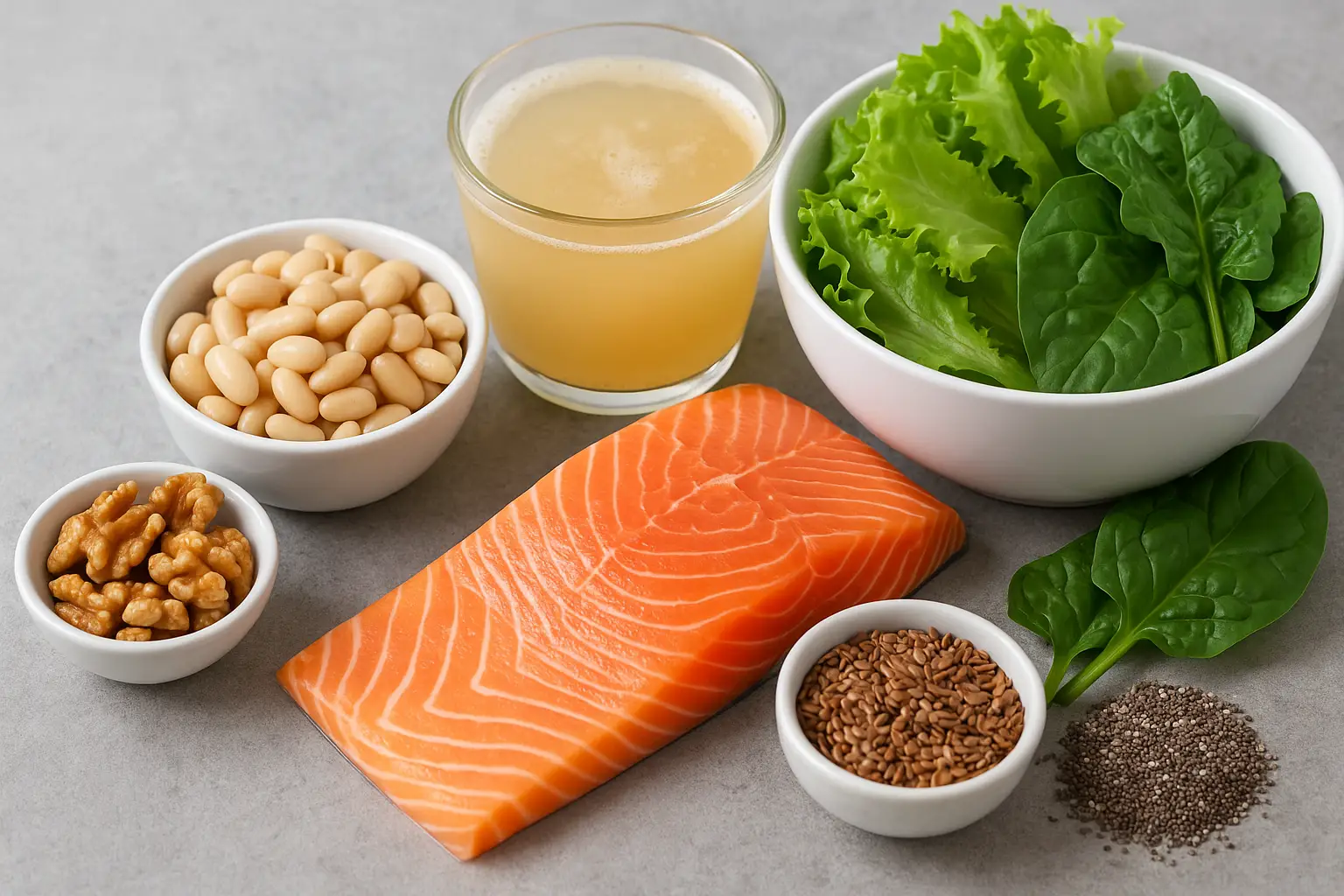Last Updated on July 23, 2025
Here’s the punch: gut health is hotter than ever in 2025. People are waking up to how what we eat—or don’t eat—shapes not just digestion, but our mood, immunity, weight, and even skin. The gut microbiome isn’t a niche wellness fad anymore; it’s personal, scientific, and booming. The global gut-health market hit nearly $117 billion in 2024—and is projected to soar by 2034. Here’s how to keep your gut thriving this year—with fresh data, new trends, and everyday foods that actually work.
1. Eat with the seasons: summer fruit + prebiotics 🌞
A July 2025 guide from EatingWell highlights seasonal powerhouses—you know: berries, stone fruits, zucchini, tomatoes, cucumbers, alliums—as superb for gut balance, hydration, and microbial diversity.
Try it: Batch-prep a summer gut bowl: mixed berries + chopped peaches + sliced cucumber + a drizzle of yogurt. Top with a sprinkle of garlic chives or raw leek for extra prebiotic punch.
2. More plant, more prebiotic fiber
Experts agree: leafy diversity (ideally 30+ plant foods a week) is more effective than one-off supplements.
Modern research from 2025 highlights Jerusalem artichokes, leeks, chicory root, dandelion greens, garlic, bananas, oats, and barley as top-tier prebiotic sources thanks to inulin and resistant starch.
Menu tip: One green smoothie = spinach + banana + oats + a dash of chicory root powder.
3. Fermented foods you actually enjoy
- Fermented staples aren’t new—but evidence on sauerkraut (just 1 cup/day protects gut lining) and probiotic-rich kimchi, yogurt, kefir, miso, tempeh is getting strong.
- Kombucha is still trending too: global market heading toward $9 billion by 2030.
- Tip: Add a spoonful of sauerkraut to your sandwich or mix kimchi into fried rice.
4. Nuts & seeds—especially pistachios
- A 12-week study in 2025 showed nightly pistachios increased beneficial microbes like Roseburia and reduced inflammation markers in prediabetic adults.
- Chia seeds remain popular via the “internal shower” method—but soak them properly for 20 minutes or you risk bloating.
5. Good fats: omega‑3s, avocado & olive oil
Omega-3s (salmon, mackerel, chia, flax, walnuts) still top the list for fighting gut inflammation and boosting omega-3 intake to ~1 g/day.
Additionally, extra‑virgin olive oil supports beneficial bacteria better than synthetic supplements, says physiologists.
6. Protein power: lean + plant-based
- Protein-rich foods slow digestion, raise GLP‑1 (fullness hormone), and support gut health—think salmon, chicken, eggs, and plant proteins (beans, lentils, tofu).
- Plus, fermented plant foods like tempeh add both protein and probiotics.
7. More than pro/prebiotics: psychobiotics & postbiotics
In 2025, the wellness world is chasing synbiotics (combo products), postbiotics (microbial byproducts), and psychobiotics—targeting mood, mental clarity, and skin via gut-brain and gut-skin axes.
Examples:
- Supplements now blend Bifidobacteria with inulin to act as synbiotics.
- Some probiotics are being marketed for women’s hormonal health, metabolic support, and immune system benefits.
8. Personalised nutrition is here
People are investing in microbiome testing, apps, and tailored supplements—shifting away from “one-size-fits-all” gut advice.
What you can do: Look into at-home microbiome kits to understand what your gut loves—just pair tests with real dietary shifts.
9. Lifestyle is the secret sauce
- Gut experts stress stress reduction, sleep, exercise, and mindful eating. The “5R” protocol—Remove triggers; Replace enzymes; Reinoculate probiotics; Repair lining with omega‑3s & glutamine; Rebalance stress—has strong backing.
- Zoom out: Don’t just eat right—sleep, stress, and movement matter too.
10. Avoid fad traps
Beware of unverified gut hacks like apple‑cider-vinegar gummies, aloe vera supplements, vague probiotic blends, or green powders—they often lack evidence, can harm gut balance, and cost more than they’re worth.
Better call: psyllium husk, two kiwis a day, EVOO, and whole-food fiber rule.
🗓 A Day of 2025 Gut-Friendly Eating
| Meal | What to Eat |
|---|---|
| Breakfast | Green smoothie (spinach, banana, oats, flax, chicory powder) + yogurt |
| Mid-morning snack | Handful of soaked pistachios |
| Lunch | Salad: mixed greens + cherry tomatoes + cucumber + a scoop of sauerkraut + olive oil dressing + grilled salmon |
| Afternoon snack | Chia “internal shower” (2 Tbsp chia, 6 oz water, lemon, soaked) |
| Dinner | Stir-fry: tofu or chicken, broccoli, Brussels, peppers, garlic/leek, served with miso soup |
| Evening | Cup of kombucha or kefir + 2 kiwis |
To wrap it up
- Follow nature’s rhythm with seasonal fruits and veggies.
- Eat diverse plants—aim for 30+ different ones weekly.
- Add fermented staples daily.
- Snack smart with soaked seeds and pistachios.
- Favor whole-food fats and quality protein.
- Adopt a holistic lifestyle: stress less, move regularly, sleep well.
- Customize when ready, but don’t skip the fundamentals.
This modern gut-health road map mixes smart science with real plates. Skip the gimmicks and embrace diversity—your gut (and whole body) will thank you.







